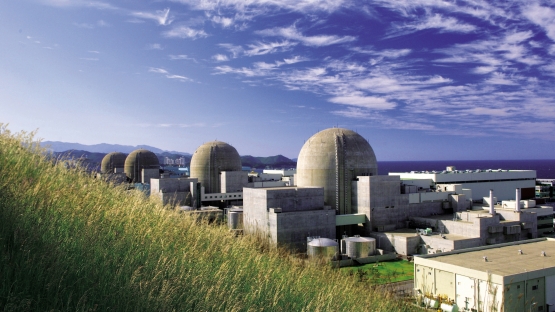New IAEA Report Highlights Nuclear Power’s Role in Mitigating Climate Change
Nuclear power can make a vital contribution to meeting climate change targets while delivering the increasingly large quantities of electricity needed for global economic development, according to a new IAEA report.

Climate Change and Nuclear Power 2018, published this week, has been updated from the last report released in 2016 to include the latest scientific information and analyses on the link between energy production and climate change. With the report, the IAEA hopes to make a useful contribution to the deliberations of policy makers participating in the activities of forums including the United Nations Framework Convention on Climate Change, which provides the international legal framework for addressing climate change.
The Paris Agreement to the Convention seeks to limit the increase in global average temperatures to well below 2°C relative to preindustrial levels by encouraging the use of low-carbon energy sources to reduce GHG emissions. Some 70% of the world’s electricity currently comes from burning fossil fuels, but to meet climate goals by 2050, 80% of electricity will need to be low carbon, according to the International Energy Agency.
“This scenario requires a significant scaling up of all clean, low-carbon technologies such as nuclear power, with electricity demand expected to rise sharply in the coming years as countries need more power for development,” said IAEA Deputy Director General Mikhail Chudakov, Head of the Department of Nuclear Energy. “If nuclear power deployment doesn’t expand in line with this scenario, the other technologies may not fill the gap—and we may not meet our climate targets.”
Nuclear power currently generates almost 11% of the world’s electricity, which amounts to one-third of the globe’s low-carbon electricity. However, according to the new IAEA report, global electricity demand is expected to almost double by 2050. Yet the future contribution of nuclear power and other low-carbon sources to the world’s energy mix will depend on a variety of factors and drivers, including yet to be defined rules for implementing the Paris Agreement.
The new report looks closely at how the nuclear industry’s efforts to address challenges to greater deployment of nuclear power—such as radioactive waste, safety concerns and high investment costs—could significantly boost the potential of the low-carbon source to contribute to climate change mitigation. Such efforts include progress in the development of waste disposal repositories, reactors with passive and inherent safety systems, reactors that generate less waste and reactors with alternative cost models.
Nevertheless, the IAEA’s latest annual projections for nuclear power, released earlier this week, show that its generating capacity risks shrinking as ageing reactors are retired and the industry grapples with reduced competitiveness.
Next week, the IAEA’s annual Scientific Forum will examine ways in which nuclear science and technology can contribute to addressing the challenges of climate change following the adoption of the UN Sustainable Development Goals in 2015 and the Paris Agreement. In October 2019, the IAEA will host experts and policy makers from around the world for an International Conference on Climate Change and the Role of Nuclear Power.
